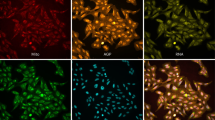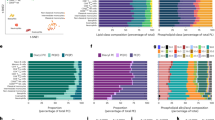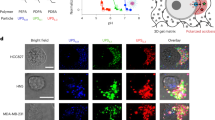Abstract
Exposure to oxygen deprivation in vitro has been reported to cause drug resistance in CHO cells (Rice et al., 1986; PNAS 83, 5978) and enhancement of experimental metastatic (colonisation) ability of murine tumour cells (Young et al., 1988; PNAS 85, 9533). Both these studies also demonstrated the induction of a subpopulation of cells with excess DNA content. Since the micromilieu in tumours results in exposure of the tumour cells to conditions of acid pH and nutrient deprivation, as well as hypoxia, we have examined the effect of exposure to acidosis (pH 6.5) and glucose starvation on drug resistance, cellular DNA content and the experimental metastatic ability of KHT sarcoma and B16F1 melanoma cells. Cells were exposed to these conditions for 24 and 48 h and tested for resistance to methotrexate (MTX) or experimental metastatic ability either immediately following these exposures or after 24 or 48 h of recovery in normal growth medium. Both cell lines demonstrated an enhancement of colonisation potential, which was most marked when cells were injected after 48 h of exposure followed by a 24 or 48 h recovery period. Flow cytometric analysis demonstrated an increase in the fraction of KHT cells with excess DNA following both glucose starvation and acidosis we observed only a small increase in MTX resistance following acidic exposure of cells and no change following glucose starvation. Since both acidosis and glucose starvation are known to induce glucose regulated proteins (grp), a subset of the stress protein family, we studied the effect of treatment with another known inducer, 2-deoxyglucose. We found that this agent affected the metastatic efficiency of KHT cells in a manner similar to that observed following exposure to glucose starvation and acidosis. However, further studies are required to establish what role, if any, grp play in this effect. In conclusion this study shows that transient exposure of murine tumour cells to an acidic or glucose deprived environment can cause progression in terms of metastatic potential.
This is a preview of subscription content, access via your institution
Access options
Subscribe to this journal
Receive 24 print issues and online access
$259.00 per year
only $10.79 per issue
Buy this article
- Purchase on Springer Link
- Instant access to full article PDF
Prices may be subject to local taxes which are calculated during checkout
Similar content being viewed by others
Author information
Authors and Affiliations
Rights and permissions
About this article
Cite this article
Schlappack, O., Zimmermann, A. & Hill, R. Glucose starvation and acidosis: effect on experimental metastatic potential, DNA content and MTX resistance of murine tumour cells. Br J Cancer 64, 663–670 (1991). https://doi.org/10.1038/bjc.1991.378
Issue Date:
DOI: https://doi.org/10.1038/bjc.1991.378
This article is cited by
-
A reciprocal feedback of miR-548ac/YB-1/Snail induces EndMT of HUVECs during acidity microenvironment
Cancer Cell International (2021)
-
Tumor pH and metastasis: a malignant process beyond hypoxia
Cancer and Metastasis Reviews (2019)
-
Kinomic profiling of glioblastoma cells reveals PLCG1 as a target in restricted glucose
Biomarker Research (2018)
-
Lactate dehydrogenase A promotes the invasion and proliferation of pituitary adenoma
Scientific Reports (2017)
-
Tissue metabolic profiling of human gastric cancer assessed by 1H NMR
BMC Cancer (2016)



